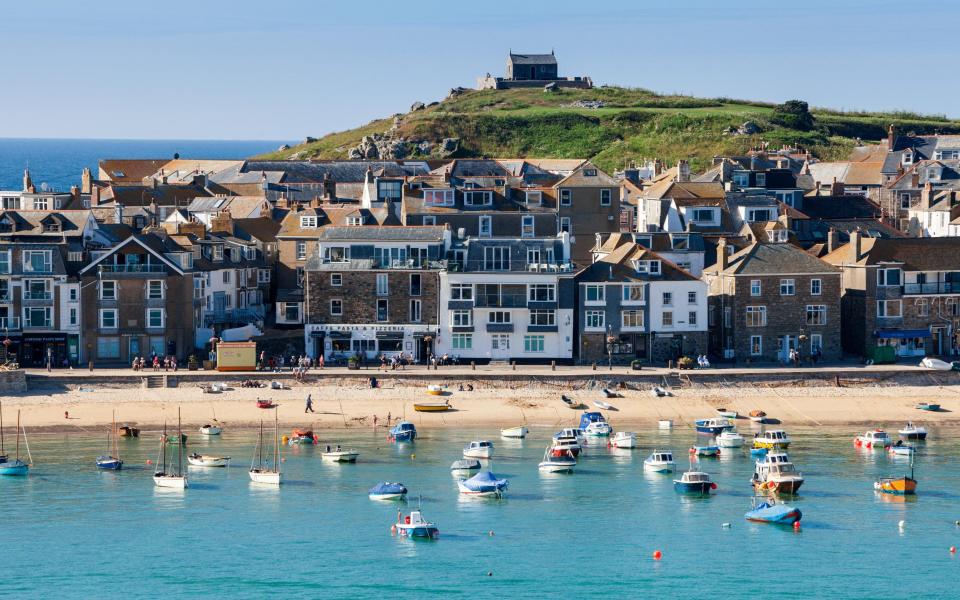Our blueprint for getting holidays back to normal, from travel corridors to vaccine passports

There are important battles to be won first, of course. Not least in hospital intensive care units and in rolling out a successful vaccination programme. But, if all goes well, within a few weeks many of us will dare to start dreaming about the realities of travel once more. By Easter, the vast majority of those vulnerable to the disease in this country should have been protected. Deaths and hospitalisations from Covid will then have dropped so much that there will – hopefully – be no reason for the Government to prevent us leaving the country and travelling if so we wish.
Obviously, we will only be able to visit other countries if and when they decide it is safe to let us in, but some will certainly be keen to see British travellers and holidaymakers back as soon as possible, and there will be many of us who will want to grab the first opportunity to get away and have a break.
Currently, politicians are terrified of making commitments – and won’t even look ahead as far as the summer. On Saturday, Grant Shapps was reported as saying that “hadn’t a clue” whether the over 50s should start booking their summer holiday, while Dominic Raab advised against it. We need a better plan than that. So here is our blueprint for restarting travel.
Keep the travel industry alive
If we are going to travel again, we need the airlines, agents, operators, ferry and rail services which have suffered such a catastrophic loss of income over the last ten months to pull through. Many are now at high risk of collapse and, if significant numbers give up the ghost before spring, it will not only mean many more lost jobs, but a loss of expertise and competition. Consumers will see higher prices and less choice and it could be years before the industry regenerates. Travel is one of the sectors which has been hardest hit by the pandemic; it is a special case which is urgently in need of special support. If the Government can spare tens of millions for, for example, fishermen suffering from Brexit, then it needs to allocate resources to travel, which is a far bigger and more critical industry.
Focus on the UK
Last year we saw how important UK holidays were during times when it was so much harder to travel abroad. Let’s get self-catering accommodation open again as a priority, and remember that the Easter holidays will be a critical moment for British resorts, hotels, sights and holiday parks. There is some evidence that transmission of the virus in hotels, pubs and bars working under Covid protocols last summer and autumn was relatively low, though Sir Patrick Vallance also expressed concern that the risks weren’t fully understood. By then we should know if the vaccination programme has been successful, and if it has, it is hard to see why the hospitality industry shouldn’t be able to start functioning again.

Reform Foreign Office advice
Current Foreign Office advice and lockdown restrictions forbid travelling abroad for anything other than essential work reasons. There is no end date on the advice and, while it is understandable that government departments don’t like to commit in such circumstances, consumers and the travel industry desperately need more certainty. Setting a date when the advice will be reviewed, if not changed, would at least allow tour operators to plan cancellations and give consumers who have holidays booked some transparency. We know that February 15 is the target date for vaccinating the vulnerable – that should be set as the date for review. And once the restrictions are lifted, we should not be seeing this sort of blanket FCDO advice in future. While the Government has a responsibility to protect us – through testing or quarantine on arrival if necessary – it should not be trying to prevent us from leaving the country if that is what we want to do.
Re-institute travel corridors?
Ironically, travel corridors – which were designed to be enabling – ended up causing significant confusion and disruption. This was because of the way they were administered – with the many last-minute changes causing huge problems for operators and holidaymakers since they were introduced last summer and then finally suspended again on Monday. The idea behind them – reciprocal arrangements allowing people to travel and then re-enter the UK without undergoing self-quarantine – was a good one. They were a vital mechanism which enabled many more people to go on holiday and for tour operators and airlines to stay in business. Now that we have testing regimes in places and as vaccinations increase, there is much less reason for them to be changed and suspended at short notice. We need them – or a similar list of countries where we can travel without restrictions – up and running again as soon as possible.

Give consumers confidence
Travel won’t start back on the long road to recovery unless consumers are confident that their money is safe and, if their holiday or flight is cancelled, that they won’t have any trouble getting refunded promptly. While the ATOL protection scheme remains a useful backstop, protecting money paid for package holidays, there is still no overall guarantee protecting us against failed airlines. And there are still too many delays and uncertainties over refunds. What’s more, the Government has been persistently slow and unhelpful in extending the Refund Credit Note scheme, which protects credits for cancelled holidays under the ATOL fund. Currently the protection only runs until the end of this month. It needs to be extended urgently.
Provide clarity
As well as having their financial anxieties assuaged, consumers will need help in navigating what are certain to be constantly changing protocols over tests, vaccines and quarantine rules in different destinations. The airline body, IATA, has introduced a Travel Pass app, aimed at enabling passengers to find accurate information on travel and entry requirements for all destinations, regardless of where they are travelling from. It will be a mammoth exercise keeping this up to date, but if people are going to be able to book with confidence, basic information of this kind will need to be easily accessible.
Make testing easier and cheaper
Because we can’t yet travel, the realities of the Government’s new requirement that all passengers arriving in the UK have evidence of a negative Covid test taken in the previous 72 hours has yet to hit. The practical obstacles to obtaining a test in – for example – a ski resort, or a small holiday island, will be considerable. A huge amount of work will need to be done to help enable holidaymakers to fulfil this requirement. And, of course, as soon as it is safe to do so and the vaccination programme has proved successful, the requirement should be ditched.
Consider vaccination passports
We don’t yet know whether vaccination will prevent people from carrying and transmitting the virus. But assuming it does, or at least that it drastically reduces the risk, then pressure will mount from those who have immunity to be allowed to travel. Already the travel industry is lobbying for “vaccination passports” to be introduced and accepted internationally so that this can happen. There are political sensitivities. Such a policy risks alienating families and younger people who have suffered so badly in terms of jobs, education and finances during the pandemic. So while it may be an attractive option for older travellers, it needs to be supplemented by a feasible testing regime which will work for their children and grandchildren, and for those who are unable to have the vaccine. And those tests need to be reasonably priced. Currently, under the Test to Release scheme, which allows returning passengers to shorten their quarantine, it costs up to £150 a time – a serious disincentive to many would-be travellers.

Set insurance standards
Travel insurance policies are all over the place at the moment. A few now have reasonable levels of cover for Covid-19, many offer very little protection, and all include exclusions for at least some pandemic-related claims. We need some common standards. It’s understandable that insurers don’t want to expose themselves to undue risk, but if the travel insurance industry wants to survive going forward and consumers are going to have confidence that they have reasonable cover, we all need to know where we stand.


